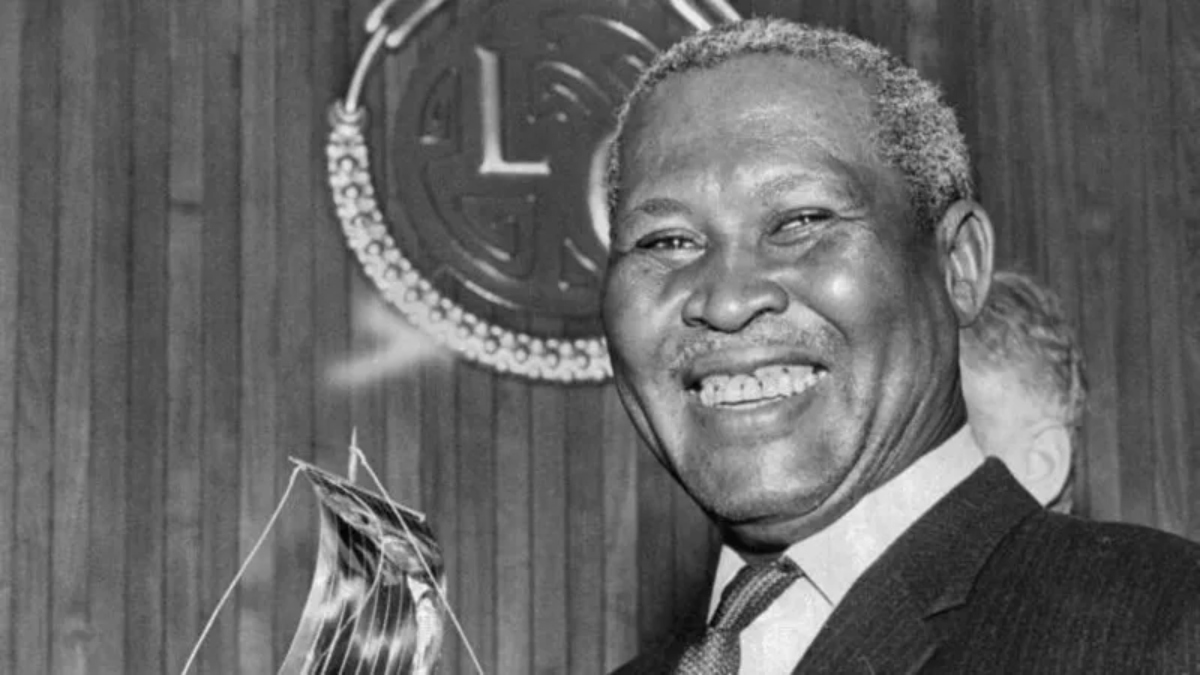A South African court has ruled that Nobel laureate Albert Luthuli, the first African to win the Nobel Peace Prize, died as a result of an assault by apartheid police, overturning decades of claims that his 1967 death was accidental, according to a BBC report.
An inquest conducted under the apartheid government had concluded that Luthuli, then leader of the banned African National Congress (ANC), died after being struck by a freight train while walking along a railway line.
Activists and his family long questioned those findings, prompting the government to reopen the case earlier this year.
Delivering the judgment on Thursday, Judge Nompumelelo Radebe said the evidence presented at the reopened inquest pointed to a fractured skull and cerebral haemorrhage consistent with an assault, rather than an accident, reported BBC.
Luthuli’s family welcomed the ruling.
Luthuli received the Nobel Peace Prize in 1960 for leading the fight against apartheid.
The ANC, under his leadership and that of his successors, continued the struggle against white-minority rule and came to power following South Africa’s first democratic elections in 1994.
South Africa’s National Prosecuting Authority reopened investigations in April amid long-standing suspicions that apartheid authorities had killed Luthuli and covered up the circumstances of his death.
“It is found that the deceased died as a result of a fractured skull, cerebral haemorrhage and concussion of the brain associated with an assault,” BBC quoted Judge Nompumelelo as saying in her ruling.
Impact Shorts
More ShortsThe court found that Albert Luthuli’s death was caused by “assault by members of the security special branch of the South African police, acting in concert and in common purpose with employees of the South African Railway Company,” Judge Nompumelelo said.
She named seven men whose whereabouts “could not be ascertained” as being responsible for or complicit in the murder. If located, they could face criminal charges.
After the judgment was delivered, a spokesperson for the Luthuli family called it “the first part of finally getting justice.”
ANC national spokesperson Mahlengi Bhengu welcomed the ruling, saying it “corrected a long-standing distortion of history.”
She added, “This ruling brings justice, truth and dignity to the memory of one of South Africa’s greatest sons and to all those who suffered under apartheid brutality.”
The Pietermaritzburg High Court ruling forms part of broader efforts by South African authorities to revisit apartheid-era cases and deliver long-delayed justice.
Last month, prosecutors reopened the inquest into the 1977 death of anti-apartheid leader Steve Biko, who died in police custody after being tortured. In May, President Cyril Ramaphosa established a judicial commission to probe alleged interference in investigations and prosecutions of apartheid-era crimes.
With inputs from agencies


)

)
)
)
)
)
)
)
)



